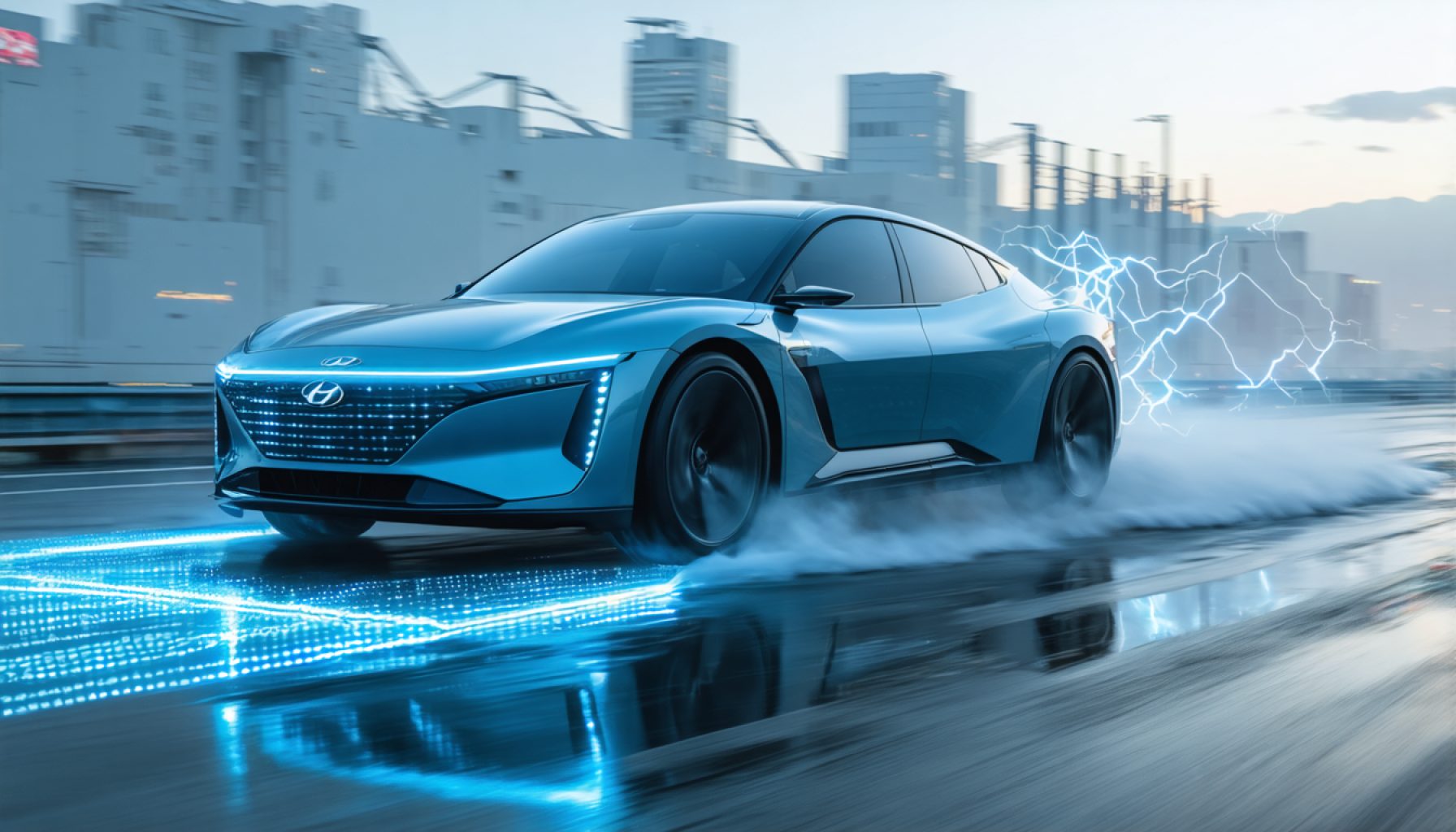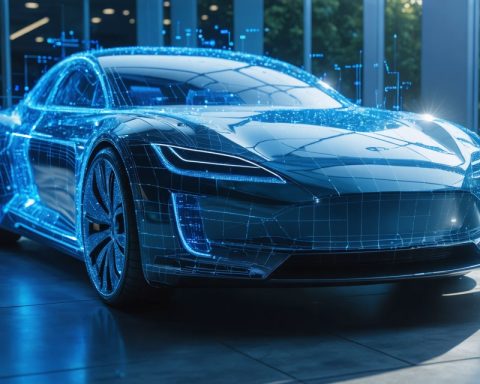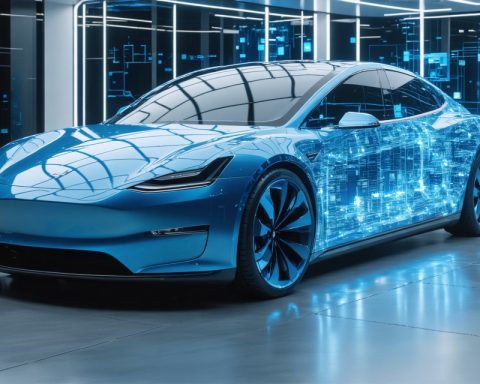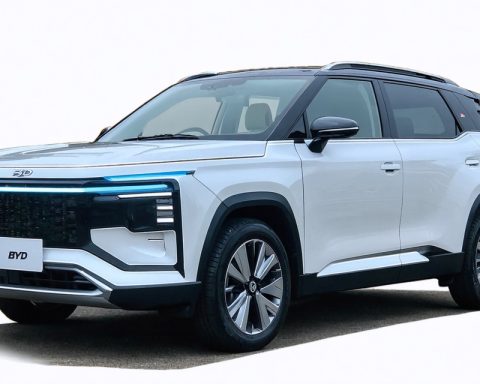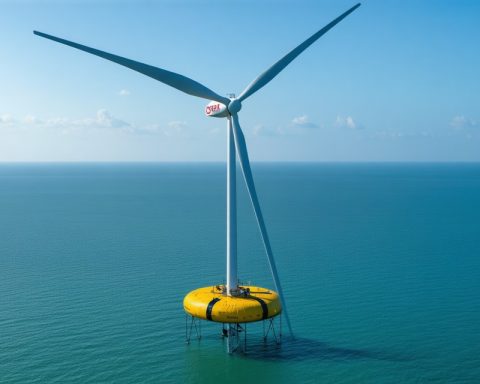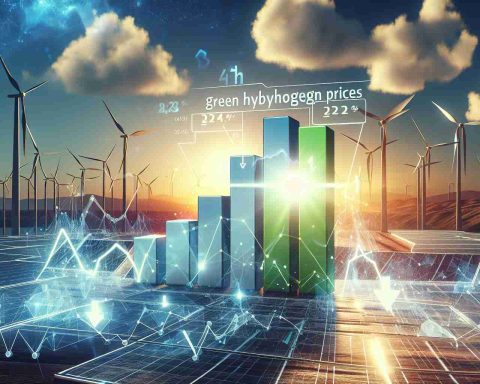- Hyundai is advancing the EV revolution by offering IONIQ 5 and IONIQ 6 buyers a complimentary ChargePoint® Home Flex Level 2 charger or a $400 charging credit.
- Hyundai’s initiatives aim to remove EV ownership hurdles, focusing on convenient home charging and extensive network accessibility.
- TESCO enhances EV adoption by ensuring charging reliability and billing accuracy, addressing significant operational issues in public charging networks.
- AmpUp and Roundtrip EV Solutions are pushing fleet electrification with advanced management software for sectors like waste management.
- Nissan partners with SK On to secure high-nickel batteries for scaling EV production and strengthening the North American supply chain.
- CarbonScape’s breakthrough in biochar-based battery-grade graphite reduces mining reliance, advancing sustainable battery technology.
- InductEV and ENC’s collaboration on wireless charging for buses highlights the viability of electric buses as efficient service vehicles.
- Honda and Acura integrate with Tesla’s Supercharger network, broadening charging accessibility for a unified EV charging experience by 2030.
- These developments are dismantling EV adoption barriers through innovation and strategic partnerships, paving the way for a sustainable future.
The electric vehicle (EV) revolution is gaining unstoppable momentum, and Hyundai is right at the forefront, spearheading efforts to make EV ownership both convenient and appealing. With the expansion of their charging incentive program for the IONIQ 5 and IONIQ 6 models, Hyundai is redefining seamless transitions to electric mobility. Buyers or leasers of the 2024 and 2025 models are being offered a choice that could well be the gold standard in EV perks: a complimentary ChargePoint® Home Flex Level 2 charger or a substantial $400 credit usable across a multitude of charging networks.
Behind this initiative is Hyundai’s commitment to eliminating the hurdles faced by new EV owners. The ability to wake up to a fully charged vehicle, thanks to home charging solutions, transforms the logistical puzzle of EV ownership into a simple, streamlined experience. ChargePoint’s expansive network of over 87,000 chargers ensures that flexibility and accessibility are just a tap away on a smartphone.
Meanwhile, in the world of public charging, TESCO is tackling an increasingly critical aspect of EV adoption—charging reliability and billing accuracy. As charging networks expand, ensuring their functionality becomes imperative. With a staggering 26% of public and up to 45% of fast chargers facing operational issues, TESCO injects confidence into this landscape through its innovative Electric Vehicle Supply Equipment (EVSE) testing methodologies. Their approach is integral to protecting consumer trust, as it ensures energy charges reflect actual usage, keeping both consumers and charging providers in good standing.
Not to be outdone, AmpUp is pushing the envelope in medium and heavy-duty vehicle electrification through a partnership with Roundtrip EV Solutions. Their advanced fleet management software promises efficiency and reliability across demanding sectors such as waste management, forging a pathway to greener, more resilient services.
In an era where every technological advancement counts, Nissan’s partnership with SK On promises to be transformative. Their agreement to source nearly 100GWh of high-nickel batteries signals a robust commitment to scale production and localization in North America, while bolstering the supply chain security needed to support the burgeoning EV market.
Simultaneously, efforts by CarbonScape to innovate within battery production are pivotal. Their breakthrough patent, harnessing biochar to create battery-grade graphite, promises to reduce reliance on traditional mining, thus heralding a new chapter in sustainable battery technology. This move not only positions the U.S. as a leader in sustainable solutions but also alleviates vulnerabilities within the global supply chain, particularly with China dominating 95% of this critical market.
InductEV’s collaboration with bus manufacturer ENC to integrate wireless charging is revolutionizing public transit. This technology promises not just to enhance uptime but also serves as a direct one-to-one replacement for traditional diesel buses, thereby showing the potential of electric buses as viable, efficient service vehicles.
With Honda and Acura also joining the ranks by offering access to Tesla’s Supercharger network, the accessibility and convenience of charging infrastructure is taking a giant leap forward. This initiative further integrates the diverse fabric of EV users under a unified charging umbrella, promising an ever-expanding network by 2030.
The takeaway from these advances is clear: the barriers to EV adoption are being dismantled at speed, thanks to collaborative innovation and strategic partnerships. This electrifying wave not only reflects a commitment to a sustainable future but also illustrates the power of convergence in technology, business, and policy toward cutting-edge solutions. As these developments unfold, one can’t help but imagine a world where EVs become the norm, and charging infrastructure is ubiquitous, efficient, and entirely seamless.
The Future of Electric Vehicles: Riding the Wave of Innovation and Convenience
The Transformation of Electric Vehicle Infrastructure and Opportunities for Growth
The electric vehicle (EV) landscape is rapidly evolving, with automakers like Hyundai, Nissan, and others leading the charge in making EV ownership more accessible and appealing. From charging incentives and innovative fleet solutions to advancements in battery technology and charging infrastructure, the pathway to a sustainable future is being paved with collaborative efforts and strategic partnerships.
Hyundai’s Charging Incentives and Its Impact
Hyundai’s initiative to offer a complimentary ChargePoint® Home Flex Level 2 charger or a $400 credit for the IONIQ 5 and IONIQ 6 models redefines customer perks in the EV space. These incentives are not just about convenience but are essential in reducing range anxiety—one of the largest hurdles in EV adoption. By providing home charging solutions, Hyundai leverages its expertise and commitment to enhancing the EV ownership experience.
Public Charging Networks and Reliability
TESCO’s approach to addressing charging reliability with Electric Vehicle Supply Equipment (EVSE) testing showcases the importance of maintaining consumer trust in public charging networks. With over 26% of public and 45% of fast chargers facing operational issues, the need for accurate billing and operational reliability is critical. These measures act as a safeguard, ensuring that consumers are not deterred by infrastructure uncertainty.
Advancements in Medium and Heavy-Duty Vehicle Electrification
AmpUp’s collaboration with Roundtrip EV Solutions brings innovative fleet management software to the fore, enhancing the functionality of medium and heavy-duty electric vehicles, particularly in the waste management industry. By streamlining these tough sectors, AmpUp aims to set a benchmark for efficiency and reliability.
Battery Technology and Sustainability
Nissan’s partnership with SK On to source high-nickel batteries marks a significant leap in battery technology and supply chain localization. Such partnerships are vital in ensuring sufficient battery supply tailored to the expanding North American EV market.
In parallel, CarbonScape’s revolutionary use of biochar in producing battery-grade graphite introduces more sustainable production methods. This innovation mitigates the environmental footprint associated with traditional mining, positioning the U.S. as a front-runner in sustainable battery production.
Wireless Charging in Public Transit
InductEV’s collaboration with bus manufacturer ENC paves the way for wireless charging to become a staple in public transit. This interaction could mean decreased downtime and a full transition away from less sustainable diesel buses, highlighting the potential for electrification in public transportation.
Expansion of Charging Infrastructure Access
Honda’s and Acura’s access to Tesla’s Supercharger network exemplifies the expansion and integration of charging infrastructure. As EV adoption grows, collaborations like these ensure that infrastructure keeps pace, ultimately aiming for a ubiquitous charging landscape by 2030.
Market Forecast and Industry Trends
The collaborative momentum seen across the EV industry points to a market poised for growth. According to Bloomberg New Energy Finance, electric vehicle sales are expected to make up 10% of global passenger vehicle sales by 2025, rising to 28% in 2030 and 58% in 2040. The growth is bolstered by continuous advancements in battery efficiency, decreasing costs, and global policy shifts toward sustainability.
Actionable Recommendations
1. For Potential EV Owners: Consider models with charging perks like the Hyundai IONIQ 5 or IONIQ 6 to simplify transitioning to EVs.
2. For Businesses: Assess innovative fleet management solutions to improve efficiency and reduce operational costs in intensive sectors.
3. For Investors: Look into companies with robust battery supply chains and sustainable production practices as potential investment opportunities.
4. For Policymakers: Prioritize the development of reliable charging infrastructure to support the increasing number of EVs on the road.
Conclusion
The EV sector is breaking barriers with strategic innovation, addressing critical challenges like charging accessibility and sustainability. As these changes take root, the vision of a fully electrified future becomes more tangible, presenting opportunities and challenges yet underscored by a collective commitment to evolution and integration.
For more on automotive advancements and Hyundai’s initiatives, visit the official Hyundai website.
